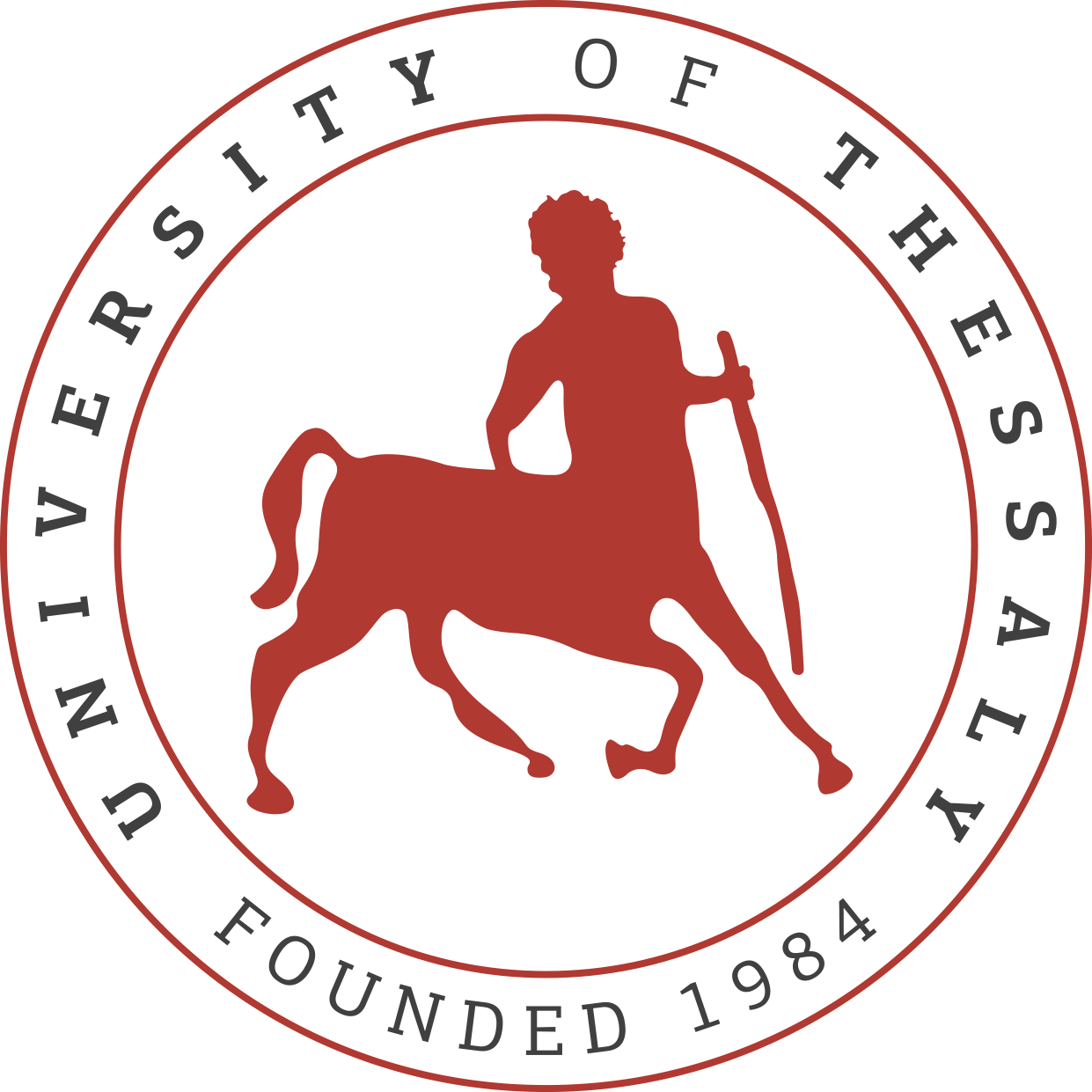Laboratory of Learning, Language & Communication Disabilities
[drupal_rest_unit]

Laboratory of Learning, Language & Communication Disabilities
Director: Filippos Vlachos, Professor
The Laboratory of Learning, Language & Communication Disabilities, at the Department of Special Education in the University of Thessaly was founded on the basis of the Official Government Gazette 1191/22-6-2015
The laboratory’s mission is:
- Theoretical and practical education of undergraduate and postgraduate students of the Department of Special Education, as well as of other Departments at the University of Thessaly, in the subjects of Learning, Language & Communication Disabilities.
- Development of courses and conducting basic and applied research in the areas of Learning, Language & Communication Disabilities.
- The cooperation and exchange of scientific knowledge with other domestic or foreign academic or research institutes.
- The organization of seminars, symposia, meetings, lectures, as well as publications in the field of Learning, Language & Communication Disabilities.
- The provision of services to individuals and to any organization of legal form as provided by the presidential decree 159 (Official Government Gazette A’ 53/27.04.1984).
Contact:
Laboratory of Learning, Language & Communication Disabilities
UNIVERSITY OF THESSALY – DEPARTMENT OF SPECIAL EDUCATION
Argonafton @Filellinon Street, Volos GR-38221 Greece
Phone:0030 24210 74739, E-mail: fvlachos@uth.gr
Areas of research / academic activity
Indicative publications of laboratory members
About learning disabilities and other developmental disorders
- Vlachos, F., Tsiftzi, F., & Agapitou, P. (2007). Evidence of cerebellar dysfunction in low-functioning children with autism. Cognition Brain Behavior, 11, 507-517.
- Vlachos, F., Stavroussi, P., Pisina, A. (2012). Handedness distribution in children and adolescents with genetic syndromes associated with intellectual disability. In M. Vucovic (Ed.) Proceedings of the Sixth International Scientific Conference “Special Education and Rehabilitation Today”, (pp. 81-85). Belgrade: University of Belgrade. ISBN 978-86-6203-037-5.
- Vlachos, F., Gaillard, F., Vaitsis, K. & Karapetsas, A. (2013). Developmental risk: Evidence from large non right-handed samples. Child Development Research, 2013, Article ID 169509, 10 pages, 2013. doi:10.1155/2013/169509.
- Stavrussi, P., Vlachos, F., & Pisina, A. (2016). An examination of language and nonverbal abilities in twins with Apert syndrome. International Journal on Disability and Human Development, 15 (1), 63-68
- Vlachos, F., Argiropoulos, V., & Papadimitriou, A. (2017). Effects of handedness and blindness on braille reading accuracy. Advances in Neurodevelopmental Disorders, 1, 141-148. DOI 10.1007/s41252-017-0020-x
- Papadatou-Pastou, M., Haliou, E., Vlachos, F. (2017). Brain knowledge and the prevalence of neuromyths among prospective teachers in Greece. Frontiers in Psychology, section Educational Psychology. 8:804. doi: 10.3389/fpsyg.2017.00804
About reading and dyslexia
- 1. Vlachos, F., Papathanasiou, I., & Andreou, G. (2007). Cerebellum and reading. Folia Phoniatrica et Logopaedica, 59, 177-183.
- Andreou, G., Vlachos, F., & Haftouras, N. (2007). The cerebellum and language functions. Ψυχολογία, 14, 113-126.
- Kasselimis, D., Margarity, M., & Vlachos, F. (2008). Cerebellar function, dyslexia and articulation speed. Child Neuropsychology, 14, 303-313.
- Papalexopoulos, P., Vavougios, D., Vlachos, F., & Karapetsas, A. (2008). The investigation of the effectiveness of the criteria for the construction of a physics text for students with dyslexia: The case of electric current. Themes in Science & Technology Education, 1, 91-106.
- Vlachos, F., Andreou, E., Delliou, A. & Agapitou, P. (2013). Dyslexia and hand preference in secondary school students. Psychology & Neuroscience, 6, 67-72.
- Vlachos, F., Avramidis, E., Dedousis, G., Chalmpe, M. Ntalla, I., & Giannakopoulou, M. (2013). Prevalence and gender ratio of dyslexia in Greek adolescents and its association with parental history and brain injury. American Journal of Educational Research, 1, 22-25.
- Vlachos, F. Andreou, E., Delliou, A. (2013). Brain hemisphericity and developmental dyslexia. Research in Developmental Disabilities, 34, 1536-1540.
- Andreou, E. & Vlachos, F. (2013). Learning styles of typical readers and dyslexic adolescents. Journal of Visual Literacy, 32 (2), 1-14.
- Andreou, E., Vlachos, F., Stavroussi, P. (2013). Multiple intelligences of typical readers and dyslexic adolescences. International Journal of Education, Learning and Development, 1, 61-72.
- Papadimitriou, A. & Vlachos, F. (2014). Which specific skills developing during preschool years predict the reading performance in the first and second grade of primary school? Early Child Development and Care, 184, 1706-1722. DOI:10.1080/03004430.2013.875542
- Karapetsas, A.V., Zygouris, N.C. & Avramidis, E. (2018). Differences in dyslexic students before and after a remediation programme: A clinical neuropsychological and Event Related Potential study. Applied Neuropsychology: Child, 7, 235-244.
- Avramidis, E. & Kalyva, E. (2004). Understanding ‘Dyslexia’: cleaning up a messy construct and developing supportive educational environments. Use of English, 56(1), 25-47.
- Avramidis, E., Lawson, H. & Norwich, B. (2010). Difficulties in Learning Literacy. Στο D. Wyse, R. Andrews & J.V. Hoffman (Eds). “The International Handbook of English, Language and Literacy Teaching” (pp389-400). London: Routledge.
- Vlachos, F., & Papadimitriou, A. (2015). Effect of age and gender on children’s reading performance: The possible neural underpinnings. Cogent Psychology, 2, 1045224. DOI:10.1080/23311908.2015.1045224
- Zygouris, N., Vlachos, F., Dadaliaris, A. et al., (2017). The implementation of a web application for screening children with dyslexia. In M.E. Auer et al. (eds.), Interactive Collaborative Learning, Advances in Intelligent Systems and Computing (pp. 415-423). DOI 10.1007/978-3-319-50340-0_36. Cham, Switzerland: Springer International Publishing. ISBN 978-3-319-50339-4
- Zygouris, N., Vlachos, F., Dadaliaris, A., Karagos, A., Oikonomou, P., Striftou, A., Vavouguios, D. & Stamoulis, G. (2020). New Tasks for a Dyslexia Screening Web Application. In M. E. Auer and T. Tsiatsos (Eds.): The Challenges of the Digital Transformation in Education, Advances in Intelligent Systems and Computing, (pp. 263-271). DOI:10.1007/978-3-030-11932-4_26. Cham, Switzerland: Springer International Publishing. ISBN 978-3-030-11931-7
About writing and dysgraphia
- Vlachos, F. & Karapetsas, A. (2003).Visual memory deficits in children with dysgraphia. Perceptual & Motor Skills, 97, 1281-1288.
- Vlachos, F. & Bonoti, F. (2004). Handedness and writing performance. Perceptual & Motor Skills, 98, 815-824.
- Vlachos, F., & Bonoti, F. (2006). Explaining age and sex differences in children’s handwriting: A neurobiological approach. European Journal of Developmental Psychology, 3, 113-123.
About mathematics and math learning difficulties
- Zygouris, N., Vlachos, F., Dadaliaris, A., Oikonomou, P., Stamoulis, G., Vavougios, D., Nerantzaki, E., & Striftou, A. (2017). A neuropsychological approach of developmental dyscalculia and a screening test via a web application. International Journal of Engineering Pedagogy (iJEP), 4, 51-65.
Actions – Events
2016 (October). Symposium on “Developmental Dyslexia: Neurogenetic Heterogeneity and Contemporary Reasoning Approaches” at the 5th Pan-Hellenic Congress on Developmental Psychology. University of Thessaly, Volos.
2017 (March). One-day seminar on “Neurosciences, education and special education”. University of Thessaly, Volos.
2017 (April). Special issue on “Developmental Dyslexia” in the Hellenic Review of Special Education.
2017 (November). Organizing a symposium on “Learning Disabilities in Mathematics: Characteristics, Heterogeneity and Educational Interventions” in the framework of the 4th Panhellenic Congress on Special Education, Athens.
2018 (November). One-day seminar on “Developmental Disorders and Difficulties in Learning”. University of Thessaly, Volos.
2019 (March). Co-organization of one-day seminar on “Cognitive – language skills & developmental disorders”. University of Thessaly, Volos.
2020 (May). Co-organization of the 8th Conference on Language Disorders in Greek (LDG8), University of Thessaly, Volos.

